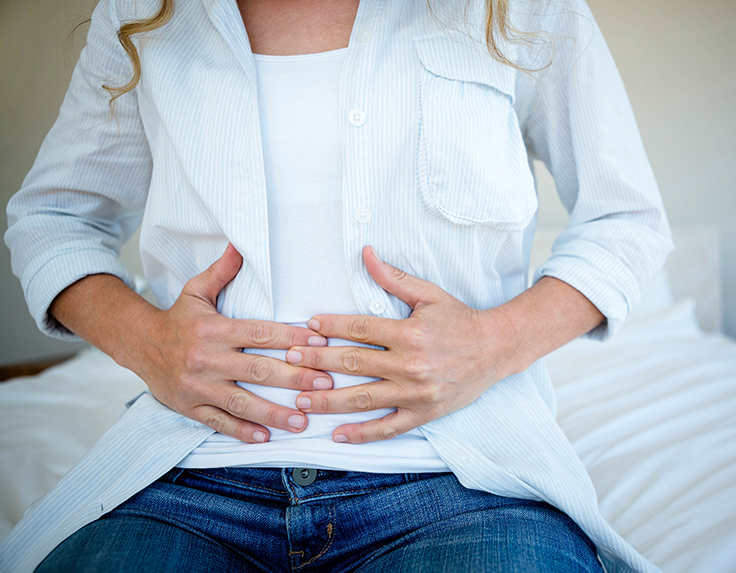Vaccines or vaccinations, so to say, helps us fight against diseases by strengthening our immunity. They prepare our body to fight against any foreign element entering the body. Vaccines contain bacteria that are the cause of infections, now these bacteria help in developing antibodies accordingly. It usually differs from the medicines as we take them when we fall sick, but vaccines prepare you from getting infected by the diseases in the first place.
Children are more prone to diseases and get infected very easily. It’s very important to prepare their body to fight infections and chronic diseases which could be fatal or may lead to something serious in the future. Vaccines help in building a strong immune system. Immunization at the right time helps the body in producing antibodies which prepare the body to fight deadly diseases. Vaccines not only build a healthy immune system, but it also helps in preventing the spread of diseases and infecting others. To fight different kind of diseases, there are different types of vaccines.
What are the types of Vaccines?
Vaccines can be classified into different categories, but their objective is to strengthen the immunity system to fight deadly and infectious diseases. Following are the different types of vaccines-
- Live/Attenuated Vaccines – A living virus is injected into the body in a weakened form which doesn’t infect the body but prepares antibodies and builds immunity against diseases. Attenuated vaccines usually give lifelong immunity as compared to others but they are not given to children with weak immune systems as they can trigger the multiplication of the virus and might cause infection and disease. These vaccines are used for rubella, chickenpox, smallpox, yellow fever, etc.
- Inactivated Vaccines – Viruses or bacteria are first killed and then injected into the body to provide immunization. Generally, these types of vaccines do not provide lifelong immunity compared to live vaccines but have lesser side effects and can be taken by children with weak immune systems. Inactivated vaccines are taken for diseases like Hepatitis A, polio, rabies, etc.
- Subunit Vaccines – These are made up of just a part of the bacteria and not the whole of it, which is then injected into the body. The benefit of these vaccines is that it prepares the body to recognize specific foreign elements and fight against them. Examples of Subunit vaccines are Hepatitis B, DTaP, etc.
- Conjugate Vaccines – These vaccines are made to protect the body from antigens. Some bacteria have a sugar coating on top of them known as polysaccharide which hides the antigen and makes it difficult for the immune system to recognize it. Conjugate vaccines connect the antigens to polysaccharides which helps the immune system in identifying pathogens and develop antibodies against them. B (Hib) and mRNA are conjugate vaccines.
- Toxoids – Some bacteria attack the body by releasing toxins inside the body. When the body is injected with toxoids, it prepares the immune system to fight the bacteria and reduce the effect of toxin which is being released by such bacteria. Diphtheria and Tetanus vaccines are types of toxoids.

Baby Vaccination Chart
To have a much clearer picture of the know-hows, here is the vaccination chart handy for you that clearly depicts the age and the requirement of vaccinations as per that.
| Birth | BCG, Hep B1, OPV |
| 6 weeks | DTwP /DTaP1, Hib-1, IPV-1, Hep B2, PCV 1,Rota-1 |
| 10 weeks | DTwP /DTaP2, Hib-2, IPV-2, Hep B3, PCV 2, Rota-2 |
| 14Weeks | DTwP /DTaP3, Hib-3, IPV-3, Hep B4, PCV 3, Rota-3* |
| 6 Months | Influenza-1 |
| 7 Months | Influenza -2 |
| 6 – 9 Months | Typhoid Conjugate Vaccine |
| 9 Months | MMR 1 (Mumps, measles, Rubella) |
| 12 Months | Hepatitis A- 1 |
| 12 – 15 Months | PCV Booster |
| 15 Months | MMR 2, Varicella |
| 16 – 18 Months | DTwP /DTaP, Hib, IPV |
| 18 – 19 Months | Hepatitis A- 2**, Varicella 2 |
| 4 – 6 years | DTwP /DTaP, IPV, MMR 3 |
| 9 – 15years (Girls) | HPV (2 doses) |
| 10 – 12 Years | Tdap/ Td |
| 2nd, 3rd, 4th and 5th Year | Annual Influenza Vaccine |
Are vaccines safe for your baby?
Yes, absolutely! Your baby is more likely to get infected by diseases caused due to not taking vaccines than the vaccines themselves. They go through numerous trials before being given to the en masse. These are only accessible to the general public after meeting with the quality and safety standards. Breastmilk and vaccines are the two most important things that help in building the immune system of your baby.
What are the side effects of vaccines?
Vaccines are safe for your baby and there are no such major side effects after taking them. You might experience fever and swelling in the injected area which could be treated by taking prescribed medicines. Few people might experience an allergic reaction which might be very mild but one should consult the doctor immediately.
Keeping track of vaccines
It is very important to keep track of your baby’s vaccine dose. You should always get your child the scheduled vaccine dose. A delay in doing so will put your baby’s health at risk and will make him prone to contagious diseases.
FAQs
Why is it important for all children to be immunized?
It’s very important for all children to be immunized as it builds their immune system strong and make them ready to fight chronic and infectious diseases which might not be possible without a vaccination dose.
What happens if I refuse vaccines for my child?
Immunization is every child’s right. Depriving them of vaccines is no less than a crime. Without the vaccination dose, your child will be vulnerable to numerous diseases and his health would always be at risk.
How do I tell my child is immunized?
Your child will be fully immunized if he receives all the vaccine doses mentioned in the vaccine chart at the scheduled time.
How many vaccines do babies get?
12 different types of vaccines are given to babies under the Universal Immunization Programme.
Hence, vaccines are made to provide immunization to your child’s body. They build antibodies against various chronic diseases and infections. Don’t be afraid to get your child vaccinated as the vaccines have no such major side effects. It won’t make your child weak or sick but it will only boost the immunity system of your baby.




































